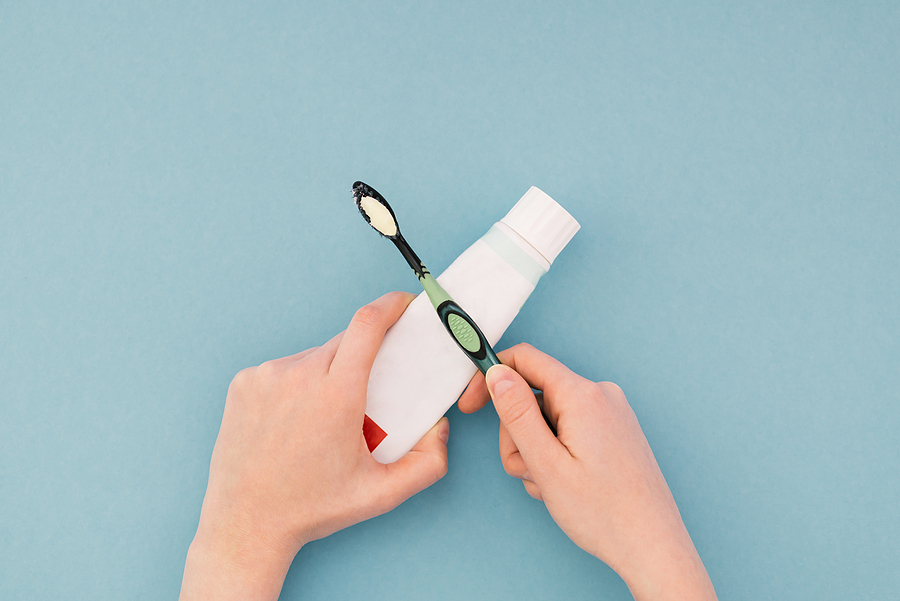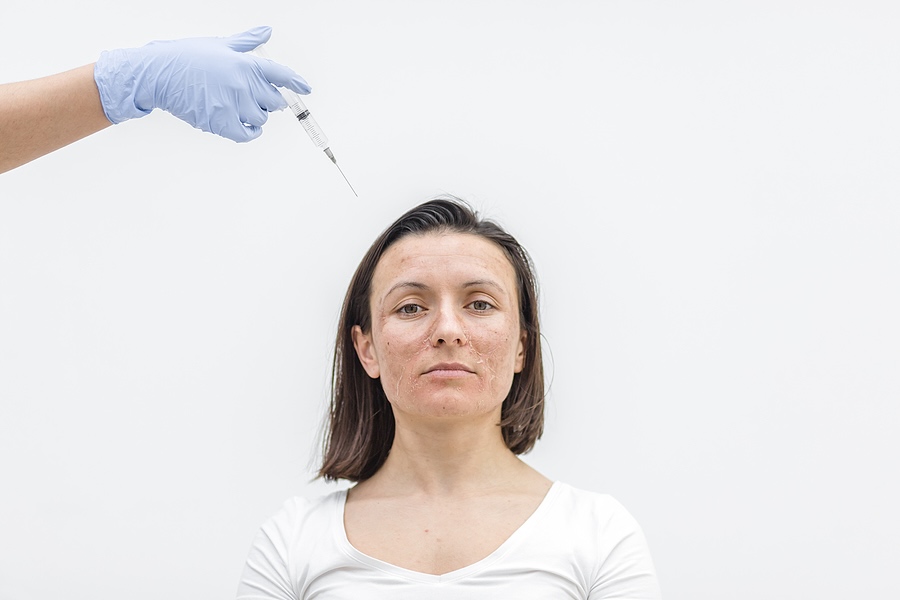Do you have unanswered thyroid questions? Let’s cover some frequently asked questions I hear in my clinic about thyroid and hypothyroidism.
Common Thyroid Questions
Here are some answers to common concerns about problems related to your thyroid, including hypothyroidism.
If my thyroid was enlarged, could I feel it? Where is my thyroid?
The thyroid is a small gland that lies behind, and is wrapped around, your Adam’s apple. It is not the Adam’s apple itself. Your practitioner can show you specifically where to feel for it. Most women are able to tell if it’s enlarged, but sometimes think there are changes there when they aren’t.
Will my thyroid be painful if it becomes enlarged?
Usually not, unless it becomes inflamed, a condition that is called thyroiditis. If this happens, the area probably will feel tender.
My doctor tested my thyroid, and told me that my results are normal. I still don’t feel like myself. Should I be concerned?
Let’s look at this together. A good first step to take might be to check with your doctor to find out what his or her definition of “normal” is. Sometimes, health care providers have different ideas of what is ideal, and what is usual. At the Women to Women clinic, we like to see TSH levels at or near 2.0. But if you are having symptoms, we will run more thyroid function tests no matter what your initial results show. Sometimes, a very small imbalance can keep your thyroid hormones from being used effectively by your other body systems. That could be causing your symptoms. Other things your doctor may want to check out might be your adrenal function, your hormone levels and your gastrointestinal system. The body is a complex system that has many interconnected relationships that affect its functioning.
I’m taking bHRT. Can I take thyroid medicine too?
Just remember that thyroid medications are very sensitive. They should be taken alone, and on an empty stomach. Allow at least one to three hours between your thyroid medication and any other medication, supplements, vitamins or food. Most thyroid medications, like Synthroid and Levothroid are T4 products; they can be taken at bedtime, but if you notice you are too energized you may want to take them in the early morning.
My mother had thyroid disorder. Will I inherit this?
Thyroid problems, like hypothyroidism, often tend to run in families. We don’t know whether genetics or even perhaps emotional patterning can cause this. Quite often, daughters will “inherit” their mothers’ patterns of passivity or assertion, along with other behaviors that affect thyroid function. Some argue that this is related. Some other autoimmune patterns also tend to show up with certain genetic strains. Being aware of your family history is a good thing. If you address your diet and nutritional needs and quickly resolve any underlying emotional issues, you improve your chances of postponing or eliminating your vulnerability. This also means you may want to start checking your hormone levels sooner.
When should I first get my thyroid levels checked?
Chances are you may have already had a thyroid exam. A manual thyroid exam is part of an annual exam. Your dentist or oral hygienist may have checked your thyroid too. If you have a family history of thyroid disorders it’s a good idea to start getting thyroid lab checks around the age of 20 – sooner if you develop symptoms. At Women to Women we often see young women in their late teenage years and early 20’s with thyroid problems. If you don’t have a family history, and you aren’t experiencing symptoms, you can start getting checked around age 30. Get tested every five years unless you begin having symptoms.
Don’t be afraid to ask your practitioner to do the testing. Some primary care physicians don’t routinely check thyroid functions unless you’re having problems, but the sooner an imbalance is found, the easier it is to treat, quite possibly without medication. Nutrition and lifestyle have such a positive and beneficial influence on us; it’s good to give attention to them, at any age.
I get a lot of exercise, but I still can’t lose weight. Could my thyroid be low?
You might want to think about having your thyroid checked if you think you’re consistent in using more calories than you are taking in, but not showing any change in your weight. Since your thyroid is mainly responsible for metabolism, even a very small imbalance could cause your rate of weight loss to slow down. You should consider other factors as well, especially if you’re experiencing no other symptoms of thyroid dysfunction. Other factors that could account for slowed weight loss or a gradual weight gain, in the absence of thyroid symptoms, include changes in your nutritional well-being, your digestive health, your detox capabilities and your hormonal levels. Another possibility is that your metabolism has slowed down as a result of too much dieting. You can find out more about how your thyroid is connected to weight gain in our other articles.
I have an overactive thyroid. My doctor is strongly suggesting radioactive isotope implementation (or surgery) what do I do now?
If you have been diagnosed with Graves’ disease and your doctor recommends radioactive isotope implementation, you may need these aggressive techniques to safely deal with an unstable, overactive thyroid. On the other hand, if you have a borderline case of hyperthyroidism, it may be possible for you to use less aggressive treatment approaches. A combination of holistic measures like acupuncture and nutrition therapy, while being monitored by a very attentive practitioner, can be especially beneficial.
It’s very important that you know all your options and that you are confident you are making the best decision for yourself. If you don’t feel comfortable with your choice, you can find another provider and ask for a second opinion.
I’ve had thyroid surgery and will have to take thyroid supplementation medication permanently. Will this negatively affect my health?
No. In fact, this gives you a chance to truly evaluate your current health practices and make some really positive and important changes in your lifestyle. By ensuring that your nutrition is the best it can be, and adding appropriate supplements, you can support your entire system. These steps will help ensure that your body appropriately uses your medication. Optimal nutrition and the appropriate supplements will help support your whole system and ensure that your body converts your medication appropriately and your hormones stay in balance.
I’ve been taking thyroid medication for the past five years. When can I stop?
The answer to your question depends on why thyroid replacement therapy was started. It may have been initiated due to a chronic autoimmune condition or because your thyroid gland has been damaged. It also depends on if you can be closely watched over the next 12 months to make certain your thyroid function remains stable.
In order to reduce or stop your thyroid medication, you need to have a practitioner who is very supportive. She or he needs to work very closely with you and carefully watch your T3 and T4 levels, as well as your nutritional and digestive status. It is reasonable to wean off medication by using optimal nutrition, dietary supplements, and other holistic techniques, but it is imperative that you be closely monitored by a medical professional.
My thyroid is healthy. How can I keep it that way?
The best way to support your overall health, including your thyroid function is through excellent nutrition that includes an appropriate daily medical–grade multivitamin. Preventative measures include routine, as well as special, intermittent testing and annual well-woman exams. Many holistic practitioners refer to the thyroid region as the home of your voice, represented in Eastern medicine by the fifth chakra. Women often feel subdued and don’t fully express themselves. Their voices are trapped. This can manifest as thyroid imbalance in the eastern interpretation. The western interpretation does not incorporate this philosophy. That is why we find it is important to incorporate both. We encourage you to speak out for yourself. It may also be helpful to find a form of creative expression that helps you express yourself in your own unique way.
Are there any foods or drinks I should avoid to protect my thyroid?
No. As long as you eat foods which are whole and natural, meaning they are free from artificial ingredients, preservatives, and additives, as much as possible and they are processed as little as possible, your diet can include a wide variety of foods.
Is there anything I should be eating more of?
I often suggest adding seaweed for problems with low thyroid function or hypothyroidism. This is because seaweed contains iodine. In small amounts, iodine is necessary for thyroid function. Just be sure to add these foods in moderation; over doing iodine can actually harm the thyroid.
What about soy and thyroid health?
This is the most controversial of all topics. I sometimes advise my patients to limit soy products if they’re having thyroid symptoms. There has been a lot of talk surrounding soy and its effect on the thyroid due to soy’s weak estrogen-like effects. Too much estrogen, or estrogen dominance, can have a negative effect on the thyroid. This is one reason that progesterone, as well as phytotherapy may help prevent thyroid problems. It helps to balance estrogen levels. If you have been eating soy for your hormonal balance, and it is not affecting your thyroid, or other areas of your health, I wouldn’t worry that it will cause a thyroid problem. However, don’t start eating large quantities of soy before talking to your practitioner.
Please refer to our many informative articles on these topics in our Thyroid Health section.
Assess your thyroid symptoms by taking our thyroid health quiz now.








